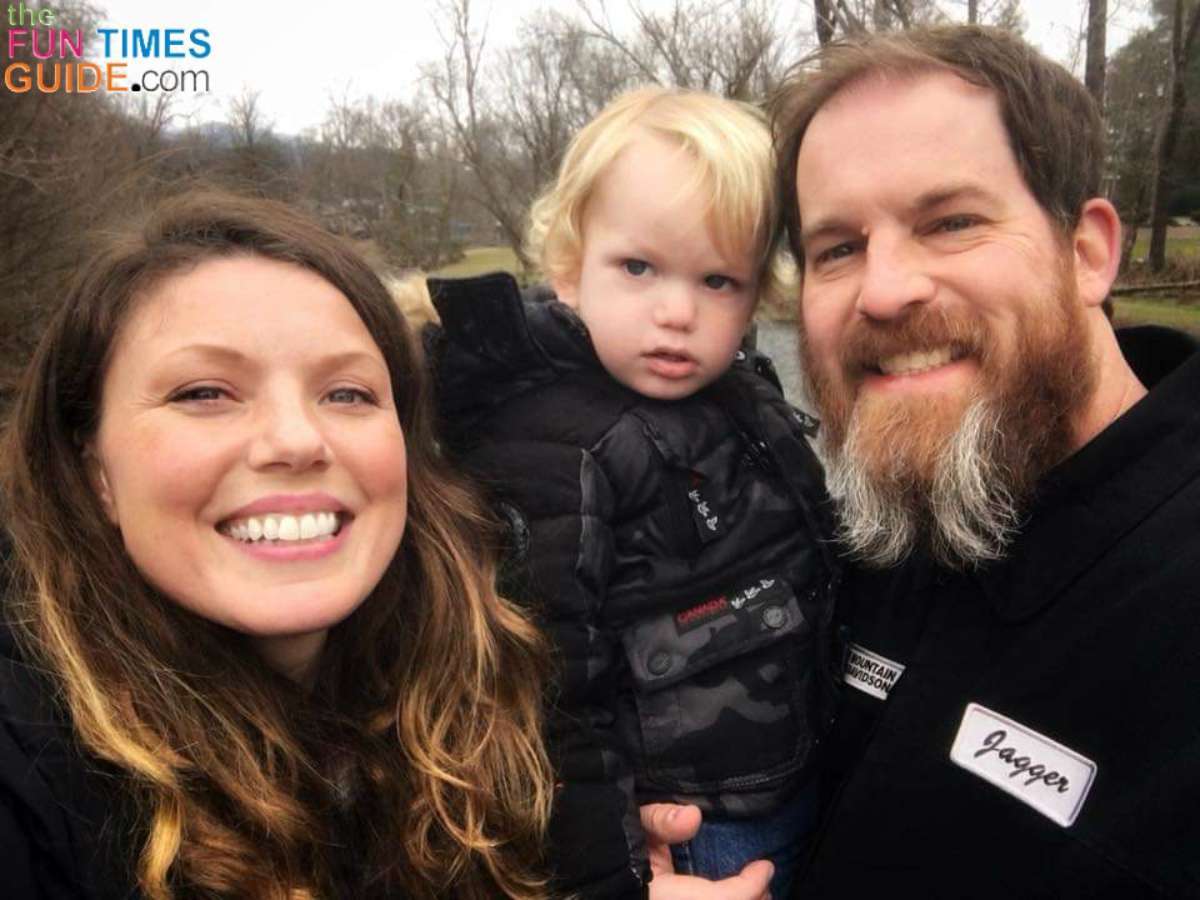 Eleven years ago I had a major event happen in my life. As a result, I began having severe panic attacks.
Eleven years ago I had a major event happen in my life. As a result, I began having severe panic attacks.
This was during a time when I was going to college full-time, working nearly full-time, and my husband had just lost his job. Not surprisingly, I was dealing with way more stress than any one person should have to. I couldn’t sleep, I was anxious all the time, and I began having very serious and debilitating panic attacks almost daily that felt like I was having a heart attack.
I also began suffering from agoraphobia, meaning I didn’t want to leave my apartment. I made myself do it, but there were days that just the thought of opening my front door was enough to make me feel like if I did I was going to die on the spot.
Needless to say, the doctors wanted to put me on all kinds of medications. I did , but since one of my parents had had an adverse reaction to it in the past, I didn’t want to take it for very long, so I didn’t.
I knew I needed something to help me get through the anxiety I was experiencing, but I also knew that drugs weren’t the solution — at least not for me.
What Causes Panic Attacks?
There is no one thing that leads to panic attacks. In fact, panic disorders can be caused by a number of things:
- stress
- chemical imbalances in the brain
- medications (particularly those that affect the part of the brain that deals with fear)
- heredity
Panic is understood to be the result of a combination of biological vulnerabilities, ways of thinking, and social stressors (biopsychosocial model). According to one theory of panic disorder, the body’s normal “alarm system,” the set of mental and physical mechanisms that allows a person to respond to a threat, tends to be triggered unnecessarily, when there is no danger. Scientists don’t know exactly why this happens or why some people are more susceptible to the problem than others. Source
Regardless of what causes the panic attacks, when they happen it is none too pleasant.
Panic Disorder Symptoms
Symptoms of panic attacks and panic disorder can include:
- chest pain
- difficulty breathing
- a racing heart
- intense and debilitating fear
- trembling or shaking
- feeling detached from your surroundings
- hot or cold flashes
Sometimes, when a panic attack happens during an activity (such as driving, swimming, or even just walking to the store), the person will begin to avoid that activity for fear that it will trigger another attack. This is called a phobia, once it reaches this level.
How To Treat Panic Attacks
So, what can you do if you suffer from panic attacks or have a panic disorder?
While panic attacks are relatively common, people with panic disorder are often afraid to leave the safety and comfort of their homes in case they have a panic attack. Many have ongoing worry about future attacks or are convinced that their panic attacks are signs of life-threatening physical, emotional, or mental problems. As a result, many people with panic disorder develop fears of certain situations or places, or are unable to leave their homes. Panic disorder can become a debilitating illness that can last from several months to many years. Source
Fortunately, there are a number of things you can do that will help you take back control of your life.
In my case, I made the decision not to take drugs in order to control my symptoms — mainly because I knew that they could be addictive and that they were not going to solve my problem in the long run.
I wanted something that was going to not only curb the symptoms, but also help me to manage my life better. That way, if I did suffer from panic attacks in the future, I would know what to do to help myself.
Here are some of the things that I did…
Natural Remedies For Panic Attacks That I Tried
![]() I contacted a traditional Native American healer.
I contacted a traditional Native American healer.
I realize that not everyone has that option (or wants it), but since I am Native American I wanted to talk to a healer and see if she had any advice for what I could do to improve the situation. Mostly, I just talked and she listened then gave me some tasks to perform.
Since I was having nightmares and I make dreamcatchers, she suggested I make a dreamcatcher for myself. Some may say that using a dreamcatcher and believing that it helped suggests that I am merely suggestible. Keep in mind, this is a very ancient tradition, and quite frankly, I was less concerned with how it worked and more concerned with the fact that it did work.
I did stop having severe nightmares after I had completed the dreamcatcher and hung it up. Whether it was the therapy of having created it that helped or the item itself doesn’t matter to me. This could also be labeled talk therapy — since most of what I did was talk in order to try and understand what was happening to me.
![]() I took up yoga.
I took up yoga.
According to research, yoga teaches you how to interact with your own nervous system. Since your nervous system is what is out of whack when you have panic attacks, it makes sense that this would work well for those who suffer from panic attacks.
I can definitely say that starting a yoga routine was a big part of what got me through this period in my life. Yoga also teaches you how to breathe properly, and breathing (which I’ll talk about next) is key to controlling panic attacks. Here’s why: when you’re having a panic attack, you have a tendency to breathe shallowly — which can increase the panic.
![]() I learned how to breathe properly through a panic attack.
I learned how to breathe properly through a panic attack.
While yoga played a big part in this (since I had a wonderful yoga teacher who was always reminding us to breathe through your asanas), I had to learn to automatically begin breathing properly whenever I felt a panic attack coming on.
Once I understood that when I got over-stressed or began feeling panicky that I breathed much more shallowly, I was able to start breathing properly. That is: I filled my lungs completely before letting the air out.
I found that after 5 minutes of deep breathing, the panic attack was usually gone before it had even had a chance to start.
![]() I eliminated stressors in my life, and learned to relax.
I eliminated stressors in my life, and learned to relax.
I quit my job — because it was too much while I was trying to go to school full-time. I just focused on school instead.
The yoga began helping me right away. Doing it helped me to feel better and more relaxed.
I also started doing things I enjoyed more often which helped. For example, I watched a lot of happy Disney and kid/family-friendly movies during that period because I really needed the positivity.
![]() I worked with a therapist.
I worked with a therapist.
Even though I was already working with a traditional healer, since I was a student I also had the option of free therapy through the college I was attending. So I took advantage of it.
It took me awhile to find a therapist there that was willing to work with me the way I wanted to work (which was drug-free), but I finally did find one. She helped me work out a lot of what had happened and why it had happened.
So, basically I had 2 therapists, and I continued to see the therapist at college long after I had stopped seeing the healer. In fact, I saw her for a year after that, and she kindly continued to see me free of charge even after I had graduated — which, technically, she didn’t have to do.
![]() I took a supplement called Ex-Stress for awhile.
I took a supplement called Ex-Stress for awhile.
I took this for about a year, and it really helped.
Ex-Stress is totally natural and herbal with hops, skull cap, wood betony, black cohosh, valerian and cayenne.
I used it to help control the stress during those times when things got to be a little too much for me — even with all of the other things I was doing to improve my situation.
Ex-Stress made a big difference for me, and it helped me to relax when I felt like I couldn’t. I highly recommend it to anyone going through stressful times. I had no side effects from it, and it helped me feel calm during situations that weren’t so calm.
How My Panic Attacks Are Today…
I no longer need to take anything for stress, but I do continue to practice yoga, and I’ve trained myself to automatically begin breathing deeply and slowly whenever I start to feel panicked. That’s all I need now to control my panic disorder. I rarely, if ever, have panic attacks these days.
Hopefully, this information will be useful to others who suffer from panic attacks and those who have been diagnosed with panic disorder.
More Natural Remedies For Panic Attacks



